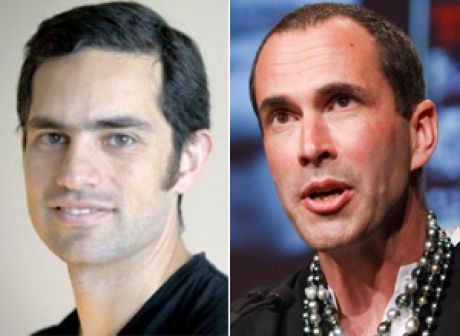News
You are here
Mass campaign frees Tarek and John

October 12, 2013
The release of John Greyson and Tarek Loubani is a tremendous victory for the thousands of people who pressured the Canadian government to finally take action for their release.
While some, like right-wing columnist Margaret Wente, would have us believe that the credit is all due to the freedom-loving government of Stephen Harper, to whom Greyson and Loubani are shamefully ungrateful due to their incomprehensible support for things like Palestinian and gay liberation (“Freed Canadians are radical grandstanders,” The Globe and Mail, October 08 2013), the fact is that without the spontaneous outflow of support channeled through a focused and persistent campaign, the Canadian government might have dragged their feet for years.
First, it must be said that the Harper government are not fans of John and Tarek, and particularly not of the progressive politics that they have long stood for and that brought them to Egypt, en route to provide and film medical support to Palestinians in Gaza. Neither are they fans of rewarding public pressure, particularly when it is in part fuelled by the progressive stances John and Tarek are identified with.
But more importantly, it must be said that the initial recalcitrance of the Canadian government had to do with much bigger fish, the likes of SNC Lavalin, which have significant ties to Egypt. Canadian trade and business interests in Egypt are not inconsequential, despite the recent revelation that the federal government prevented Manitoba Telecom Services from selling one of its business units to an Egyptian investment group due to "unspecified national security concerns." The relationship may be uneasy, but the Canadian state has a stake in expanding oil, transportation, and other interests in the region. Equally, the federal government has an interest in ensuring the political and military stability of the region, including in neighbouring Israel.
But this was not the primary concern of the nearly 150,000 ordinary Canadians who signed a petition for John and Tarek’s release. Nor was it the concern of the students and academic colleagues who spoke out to support them, the students who made the marvelous youtube video about what John Greyson taught them about both film and social justice, the filmmakers who organized a panel in John’s defense at the Toronto International Film Festival, or of those who transformed the entrance to the Ontario College of Art and Design to a “Free John and Tarek” marquee. For them, the concerns ranged from general support for civil liberties to support for the commitment to human rights, Palestinian rights, and to the true spirit of the Arab Spring represented by both John and Tarek.
This of course, is what is most distasteful to Wente and her ilk, anxious as they are about the potential for John and Tarek’s profile to build the movements they're involved in – and also for the victory of their release to build confidence in the power of popular pressure to influence governments abroad and at home. Wente’s solution was to both champion the role of Harper and Foreign Minister John Baird as the great heroes of the story without mentioning the popular campaign, and to unleash every homophobic and Islamophobic attack she could muster on them individually, weak as they were (“ gay-themed films, financed with government handouts, have been commercial flops,” “ calls himself a Palestinian refugee, although he was born in Kuwait”). She asserts that they “knowingly stepped into a volatile situation” in order to grandstand for their causes, that “they’ve gotten a lot of mileage out of their incarceration” and that they should kiss Baird’s feet for securing their release.
But Wente should indeed not hold her breath for this to happen. John and Tarek know (as they indicated in a video after their release and before their return home), their campaign knows, and a large number of people who threw in support likely know as well, who is really responsible for preventing them from languishing for years in prison. But what’s most important to know for the future is that mass pressure was necessary, and successful, not only to influence authorities in Egypt but almost more importantly to push Canadian authorities to take action they were reluctant to take.
Section:
Topics:









